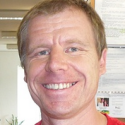2025 Church Revitalisation in Today's Context Network
- Image

For the last few decades, there has been a growing realisation that existing churches, even those that were recently planted, are not faring well. Many church leaders currently lack the training necessary to build sustained growth, health, and spiritual vitality.
The Church Revitalisation in Today's Context Network seeks to respond to the decline of existing churches by training church leaders in the spiritual leadership and skills they need to revitalise their churches for long-term sustainability. Its vision is to equip spiritually mature and intellectually well-grounded evangelical church leaders to:
- Improve the spiritual health of the church through worship, building trust in God as obedient disciples
- Improve relationships within the church and with unbelievers through face-to-face relationships and better integration of new members
- Improve the quality of leadership within the church through team building
- Improve the effectiveness of the church by identifying the mission, vision, and strategic plan
- Improve the contextualisation of the church through historical, geographical, and cultural study of the church’s community
Participants in the Church Revitalisation in Today's Context Network will receive specialised training at the Annual Meeting and throughout the year, as well as helpful resources and opportunities to be mentored.
What Network Participants Are Saying
- "For me, ELF is an island of renewal in the midst of the challenges posed by my ministry. One of the main sources of joy for me is seeing so many leaders in one place, worshipping the King who changes lives, families, churches, cities, and nations. Leaders laying down their titles and acknowledging God's presence and grace in everything is truly inspiring. The Forum also helps me to refocus on my church. As somebody who is involved in many faith-related activities, I am reminded here that the local church is the utmost priority when it comes to ministry. Being in Christ means being in His church."
- Balazs Koncsard, Worship Leader and Teacher, Hungary - "This year I joined the Church Revitalisation Network and have been blessed with many insights, ideas, and relationships. The Forum has been instrumental for me in creating friendships and partnerships with other European leaders in similar spheres of ministry. I have been blessed with meaningful contacts and relationships with preachers and pastors from across the continent, but also with professionals from other spheres of life."
- Vladimir Raichinov, Vice President of the Bulgarian Evangelical Alliance, Bulgaria - "For the last couple of years our church has gone through some difficult times and some problems have emerged. Because of those problems, we see a need for church revitalisation and the Forum is the best place I know of to get insights on the matter. For me it has been a tremendous blessing to participate in the Forum’s Network about this topic. I am learning a lot."
- Edvin Puka, Field Leader in IFES, Albania
Applicants should be church leaders interested in receiving the spiritual leadership and skills they need to revitalise declining churches and build sustained growth, health, and spiritual vitality.
Network Leadership
Network Speakers
David Brown planted three churches before revitalising a church in central Paris. For many years, he was involved with GBU (Groupes Bibliques Universitaires), the French student movement affiliated with IFES, and he was also chair of the Evangelism Commission of the French “National Council of… Read more
Daniel Fodorean currently serves as Dean of the School of Theology and Associate Professor of Applied Theology at the Baptist Theological Institute of Bucharest. In addition to these roles, he fulfills the duties of Director of Leader Formation Institute and Antioch Church Network, Pastor of… Read more
Ivica Horvat has 35 years of business experience. He founded and currently leads several companies in Croatia, Serbia, and North Macedonia, specialising in the production and wholesale of personal protective equipment (PPE). In parallel with entrepreneurship, he served for several years as a… Read more
Stephen McQuoid grew up in Ethiopia where his parents were missionaries. He then lived in Ireland where he qualified as a nurse before going on to study theology, gaining a variety of degrees including an MTh and PhD in theology. He is the author of 16 books on subjects such as discipleship,… Read more
David Novák (M.Th) is president of the Czech Brethren Church, which is the largest Czech evangelical denomination. He also teaches philosophy, ethics for helping professions, and missiology at Prague Evangelical Seminary. Prior to that, he led a denominational youth ministry for 16 years before… Read more
Rico is a passionate evangelist, and former Senior Minister of Evangelism at All Souls, Langham Place in London. Co-Founder of Christianity Explored Ministries, he is a regular speaker at missions and evangelistic events around the world. He’s married to Lucy and they have three young children… Read more
Rev. Daniel Trusiewicz is a Baptist pastor and has been involved in church ministry for over 40 years as a local minister, a national leader, and a coordinator of international ministry in Europe. For the last 20 years, he coordinated the church planting program of the European Baptist… Read more
Network Programme
Sunday, 18 May
Why is church revitalisation necessary? What can we embrace as a realistic, exciting and biblical vision of a healthy church in today’s European context? What steps can we take to work towards this vision?
What practical steps can we make to diagnose the situation and get the church to embrace the need for change, while keeping unity among the members? How can we ask the right questions to get the church to look at itself honestly?
Monday, 19 May
Why do some people refuse changes? How can we motivate people for change when traditions and legalism have a strong hold on their minds and beliefs? In this session, we will consider how legalism stunts revitalisation efforts and what we can do about it.
What can lead an evangelical church to move away from the centrality of the Gospel? What does it mean for the Gospel to remain central in all the different activities of the gathered church?
Tuesday, 20 May
Secularisation implies the withdrawal of religious practice from public life to the private realm, so faith becomes one option among many others. In other words, people have a new sense of self and the individual has replaced God as the source of authority. We will examine the implications of secular ideologies for church life, discipleship and evangelism. How can we as leaders help our fellow believers to live out their faith meaningfully in their day-to-day life so that Christianity becomes plausible to our contemporaries?
For many Europeans today, the only visible and tangible contact they have with the Christian faith is through their contact with Christians in their daily lives. How can we disciple believers in a practical way, to be in the world but not of the world, to be courageous, honest and humble witnesses through their relationships with the people around them?
Wednesday, 21 May
From his experience of revitalising a church in Paris, David will recount his observation of the church at the time of his arrival as pastor, the different ways in which he introduced change, and what he put in place to maintain the ongoing development of the church.
Can churches really be revitalised? What does it look like in practice? In this session, we will engage practical case studies about how churches went through church revitalisation, looking at some of the challenges of the process in their contexts, but also hearing about the encouraging outcomes.






